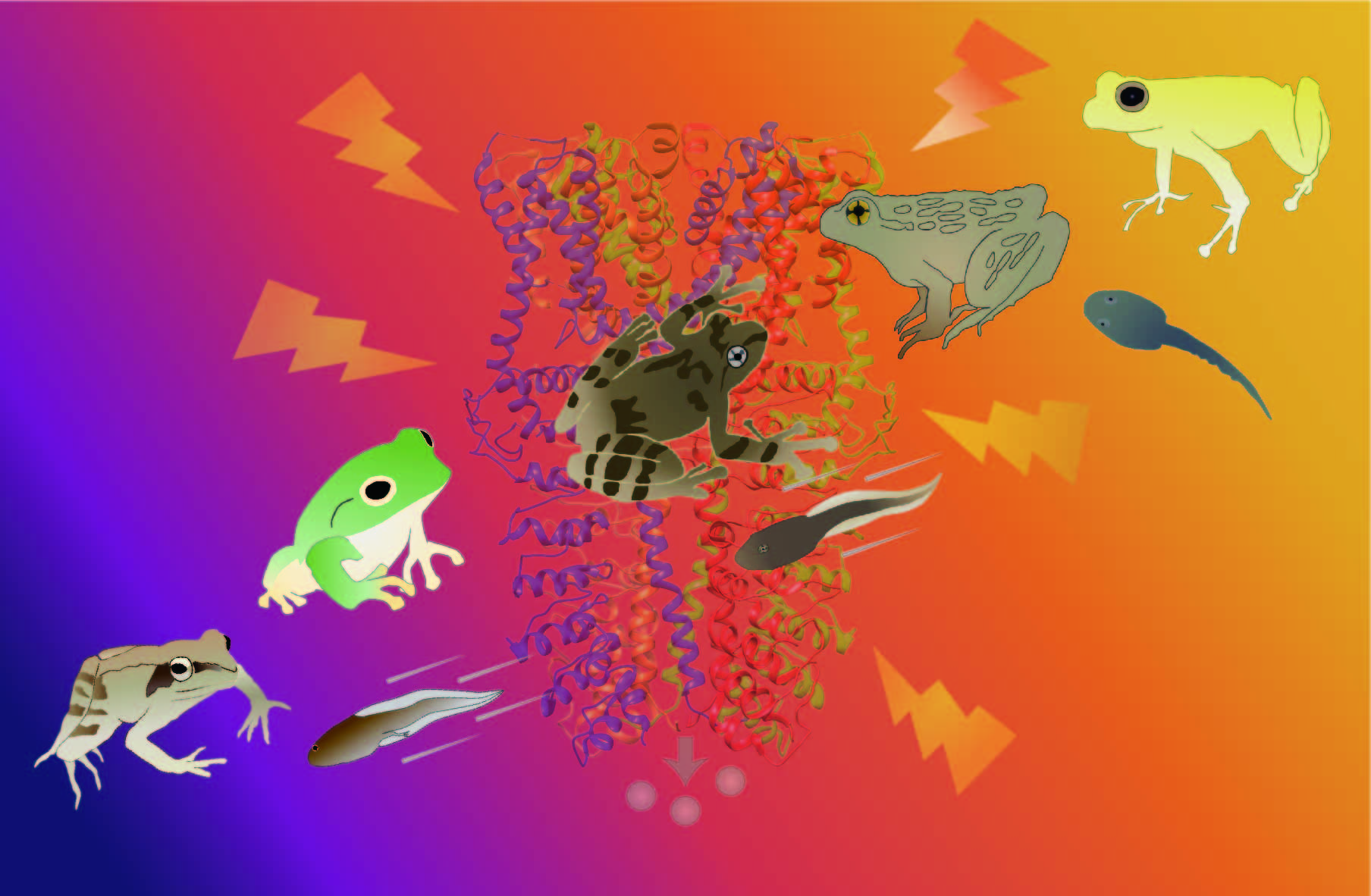Researchers from the National Institute for Physiological Sciences found the large variation in heat-escape behaviors among tadpoles of frog species adapted to diverse thermal niches. Moreover, the functional alteration of TRPA1, servs as a heat sensor, likely linked with species variation in escape behaviors.
Perception of noxious heat and escape behaviors are necessary for survival in changing thermal environments. The species inhabiting different thermal niches might have evolved different heat-escape behaviors during evolutionary processes. It is well known that the variation in heat tolerance and escape behaviors is related with thermal niches utilized by each species, yet, the relative importance of these two factors remains poorly understood.
In this study, Shigeru Saito and his research team at the National Institute for Physiological Sciences found that heat-escape behaviors of tadpoles are closely linked with habitat thermal conditions among frog species inhabiting diverse water environments. In addition, the species variation in heat-escape behaviors is much larger than that in heat tolerance.
The functional change in a thermal sensor is likely to be involved in the variation in heat-escape behaviors. TRPA1 is expressed in peripheral sensory neurons and serves as a heat sensor. The responses of TRPA1 to heat stimulation varied among frog species, and its functional variation is consistent with the difference in heat-escape behaviors. These observations suggest that perception of noxious heat evolved much faster than heat tolerance and played crucial roles in the evolutionary adaptation.
“Thermal sensors in peripheral neurons likely played an important role in thermal adaptation since its can directly affect sensory perception and resulted in the alteration in heat escape behaviors,” says lead author Shigeru Saito. “Our work provides novel insights about the process of thermal adaptation, which is informative for considering the effect of global warming on animals”.
556
